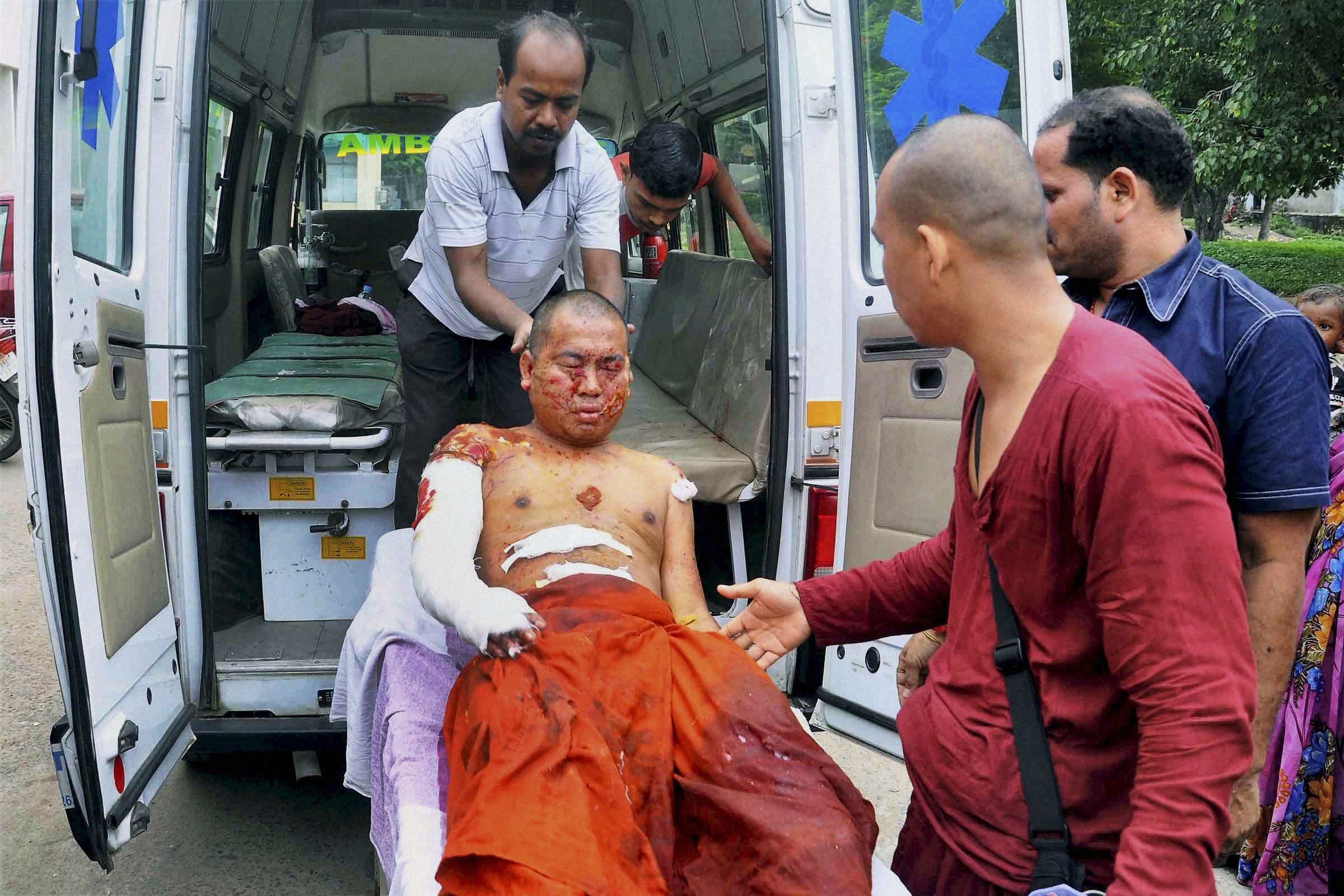Maharashtra’s Deputy Chief Minister Chhagan Bhujbal was the state’s home minister when the anti-terror law, the Maharashtra Control of Organised Crime Act (MCOCA), was legislated in 1999 to end the growing underworld menace. Alleged to have links with Abdul Karim Telgi, the mastermind behind the multi-crore fake stamp paper scam, and for influencing investigations in the case, Bhujbal was also in the line of fire for having supported former Mumbai police commissioner RS Sharma who was booked under MCOCA but later discharged. Following TEHELKA’s exhaustive investigation on the abuse of MCOCA, published over the last three weeks, Bhujbal admits that the law has indeed been misused. Excerpts from an interview with Rana Ayyub:

Do you think MCOCA has succeeded in curbing the underworld?
I am of the opinion that a legislation like MCOCA was necessary to curb the activities of the mafia in Mumbai around 1999, when extortion and murders were taking place at the behest of underworld dons sitting in Dubai and Bangkok from where they used to indulge in criminal activities. People just wanted to leave Mumbai. Hoteliers and mill owners were being killed. The film industry wanted to shift base. It was becoming increasingly difficult for this city to function. Which is why MCOCA was brought in. Thereafter, certain things took place, which made us realise that some amendments to the law were necessary.
Just because somebody finds some minor flaws in the investigation when people involved in extortions, killings and other such crimes are arrested, does not mean that they are innocent. What is absolutely ridiculous, however, is imposing MCOCA on those police officers who might have made some mistakes while preparing the [prosecution] files, even though they have done the main job of arresting the criminals. Yes, some disciplinary action is fine; there are, after all, so many regulations and acts that cops come under and get punished for, but that was not done. What did we do? We put the prosecuting police officers in the same bracket as the gangsters, invoking the same Act against most of them.
Take the example of Telgi. When a person like Telgi, who has been in and out of the police net several times before 2002, is arrested and put under MCOCA, just because of some police in-fighting — probably to settle old scores — MCOCA was invoked to put the very officers behind bars who had been responsible for unearthing the scam.
There is infighting everywhere. Among us politicians, among you journalists — but that does not mean MCOCA should be used against them. They have ruined the life of cops like [RS] Sharma who spent 35 years in the service. I think certain changes are needed in a law like MCOCA.
What amendments are you talking about in the law? Shouldn’t basic investigation be made mandatory?
Not only investigations, there are many other things about MCOCA. For instance, once MCOCA is used against a person, he is behind bars for a year. He does not get bail; there is no provision for it. And after that, if the court decides there is no case against the person and discharges him, still a year is gone. His family life is totally ruined. What I feel is that MCOCA is needed but with a few changes, so that innocent people are not implicated.
MCOCA is as draconian as POTA (2002) and TADA (1987) because confessions to the police are accepted as evidence. As the TEHELKA investigation exposed, most confessions are eventually retracted. The innocent are harassed. Criminals escape prosecution. No proper investigation is carried out. Instead, the whole case is based on forced confessions.
Evidence is necessary, I do agree, but there are times the forced confessions is the only weapon against a powerful member of the mafia who has his tracks well covered. Today everybody rails against the MCOCA, but if you go back to 1999, it was the government and the cops that the people were cursing for being ineffective. Tell me, what do you do then? Even now, is there any person who would dare to stand as witness against these goons, especially the feared underworld dons and their henchmen? Even though they may have actually witnessed a criminal act, they would not dare to give evidence.
But has the law really curbed the underworld? The police arrested Dawood Ibrahim’s brother, but he was acquitted. If MCOCA is potent, why do these people go scot-free?
I believe that in only a small percentage of cases the criminals managed to go scot-free due to a lack of evidence. But as many would know today, it’s because of MCOCA and the stern action that was taken by the police officers that Mumbai, or rather Maharashtra, is a safer place. When I was the home minister in 1999, many in Bollywood expressed their desire to shift to Hyderabad, as they did not feel secure from the underworld here. We asked for some time from the [film] industry and brought the situation under control using the same MCOCA that you are now criticising. Yes, some modification, I reiterate, is necessary to ensure that it is not misused.
The rate of conviction under MCOCA is dismal. Would you still think the underworld has been curbed?
Yes, I would say it has been curbed by 80 percent. Don’t you remember the Khatau mills case [Sunit Khatau, textile tycoon, was gunned down in 1994, allegedly a victim of inter-gang rivalry] or the case of [movie producer] Gulshan Kumar [shot dead in 1997 for not meeting extortion demands]? There was a time when prominent businessmen would get extortion calls and threats everyday. Today, at least we have some semblance of law and order and MCOCA has been instrumental in keeping things under control.
What about those who live overseas but run syndicates here? Chhota Rajan’s wife Sujata Nikalje is out on bail. The police could not build a strong case against her, just as they failed against Dawood’s brother.
There are times when we know people are involved, and yet they go scotfree. Everybody knows that Dawood’s brother, Iqbal Kaskar [was involved], even though he claimed that he was not. Just because a person was acquitted does not mean he was not a criminal.
‘It is ridiculous that MCOCA was imposed on policemen who arrested criminals’
The police had summoned you in connection with the illegal Sara Sahara shopping complex case that was allegedly owned by Dawood, as also in the fake stamp paper scam involving Telgi.
That was the foolishness of a police officer. They couldn’t prove that there was a meeting between Telgi and myself. I was named out of vindictiveness.
How would you ensure that MCOCA is not misused?
Unfortunately, there have been people who have had to suffer due to the misuse of the law. I am not an expert on this issue and I may not know of all the cases, but, yes, certain lacuna are there and some safeguards should be maintained. Examples of misuse like that in the case of the cops are before us. We need to learn the lessons, see to it that they are not repeated, and ensure that all precautions are taken while using MCOCA.
WRITER’S EMAIL
rana@tehelka.com




